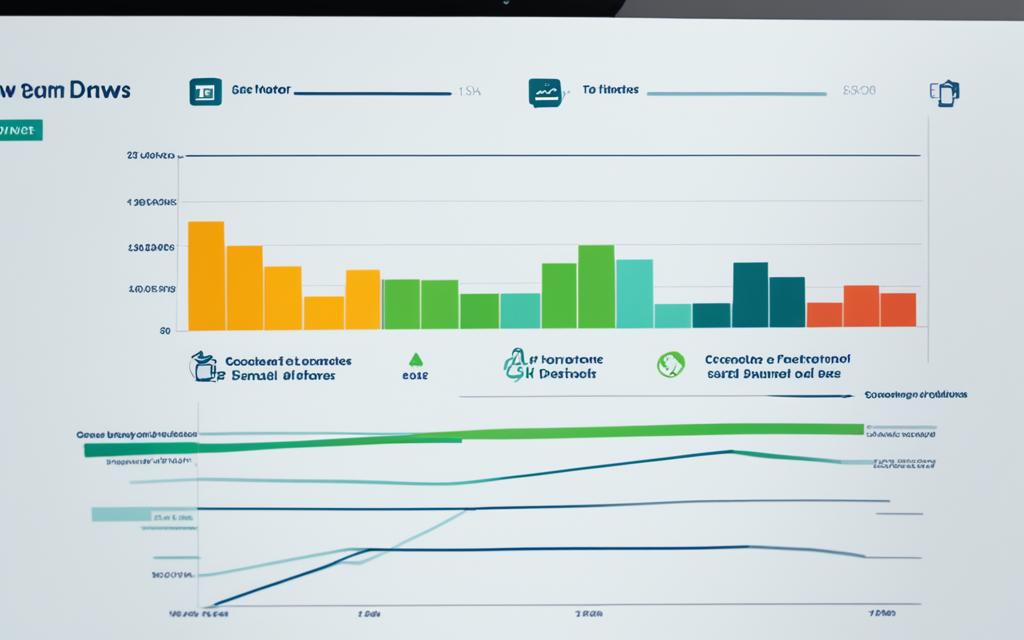Why You Should Stop Depending on Airbnb for Bookings
- 07/13/2024
- Short-Term Rentals
Discover why depending only on Airbnb for bookings may hinder your growth. Learn how to diversify your sources and build a resilient... Read More
This website uses affiliate links, which may earn us a small commission at no extra cost to you. Learn More...

As the U.S. short-term rental market flourishes, with figures showing a valuation surpassing $64 billion and over 2.4 million listings, hosts face the challenge of distinguishing their properties in a competitive arena. The strategic selection of listing platforms is crucial, as it governs the exposure to potential guests, directly influencing bookings and income.
This article deep dives into the platforms that stand at the forefront of the vacation rental ecosystem, from renowned entities like Airbnb and VRBO, which are household names in the short-term rental industry, to other key players such as Booking.com, Expedia, and niche markets targeted by Homestay.com and Fairbnb. The essential aspects to contemplate range from fee structures and commission rates to the types of properties favored by each platform, all woven with the thread of providing ample support to hosts. Enlisting the properties on multiple platforms can lend hosts an edge, making their offerings more visible in the densely occupied market landscape.
Entering the short-term rental market requires an astute understanding of the available platforms. These channels are pivotal in determining a property’s success by amplifying its visibility and driving occupancy rates. The U.S. market, with its massive valuation, presents numerous opportunities for property owners to tap into, provided they make the right choices.
The proper selection of vacation rental sites can significantly affect property listing exposure. Platforms like Airbnb, VRBO, and Booking.com not only offer diverse listing opportunities but also provide various tools to manage and optimize rental properties. To make the most out of these platforms, understanding their specific features and audience reach is crucial.
By leveraging the right platforms, owners can ensure that their properties gain maximum exposure in the short-term rental market. This ecosystem supports ease of booking, enhances guest reach, and ultimately boosts revenue potential. Thus, diligent vacation rental sites selection is essential for any property owner looking to succeed in this competitive landscape.
Adopting the correct strategy for property listing exposure can turn a modest rental into a high-demand destination. The foundation of this success lies in selecting the appropriate platform, aligning features with owner needs, and understanding the nuances of each channel.
“The platform you choose directly impacts your property’s occupancy and revenue,” explained by industry experts.
Ultimately, the right platform not only advances booking rates but also provides invaluable tools and support to streamline property management. Embracing the potential of these platforms can lead to substantial growth and enduring success in the short-term rental market.
Choosing the right short-term rental platform is paramount for hosts aiming for ideal guest attraction and booking revenue increase. A well-selected platform not only enhances visibility but also maximizes booking potential.
The primary advantage of selecting the correct rental platform is increased exposure and bookings. Platforms like Airbnb and VRBO cater to millions of users worldwide, providing hosts with unparalleled access to a diverse audience. This level of visibility is essential for achieving the ideal guest attraction, helping hosts secure consistent booking revenue increase.
Alongside exposure, the right platform offers robust host support structures and rental platform resources. Airbnb, for example, provides hosts with comprehensive support, including dedicated teams, user-friendly reservation management tools, and seamless communication channels. These resources not only help in efficiently managing listings and resolving guest queries but also contribute to maintaining a high standard of service that fosters repeated bookings and high guest satisfaction.
In the burgeoning world of short-term rentals, specific platforms cater to diverse needs and preferences of hosts and travelers. This overview highlights the distinct characteristics and advantages offered by each platform.
Airbnb is renowned for its extensive user base and global presence. The platform allows hosts to create unique and customizable Airbnb listings, appealing to a varied market of travelers seeking distinctive experiences.
VRBO stands out by focusing on creating VRBO home rentals for families and groups. This platform is ideal for hosts with properties catering to larger gatherings, emphasizing comfort and convenience.
Known for its wide-ranging accommodation options, Booking.com appeals to a broad audience. The platform facilitates seamless integration of various lodging types, enhancing the potential for Booking.com accommodation options.
Expedia offers a comprehensive suite for both travel and lodging needs. The platform’s extensive reach helps consolidate hotel and rental bookings, providing hosts with optimal exposure through Expedia travel bookings.
Listing properties on partner platforms can also result in visibility on Google Vacation Rentals. This feature amalgamates various outlets, boosting exposure and enhancing the significance of Google Vacation Rentals exposure.
By understanding the unique features and benefits of each platform, hosts can strategically optimize their listings and reach their target audience effectively.
Choosing the right short-term rental platform can immensely impact your hosting experience and profitability. When evaluating options, it’s crucial to consider several key factors to ensure optimum results and alignment with your property type and hosting goals.
One of the primary factors to weigh is the cost associated with listing your property. Platforms differ significantly in their fee structures. Airbnb, for instance, charges both hosts and guests a service fee. Airbnb’s host-only fee typically ranges between 14%-16% depending on the cancellation policy. On the other hand, VRBO employs a different model, charging a 5% commission on the rental amount and any additional fees, such as cleaning or pet fees, plus a 3% credit card processing fee. Considering commission cost management is critical to accurately gauging your potential earnings.
Another vital aspect is the alignment of your property type with the platform’s target audience. Different platforms cater to varying markets and customer preferences. For example, Onefinestay is renowned for luxury and high-end properties, making it ideal for premium destination hosts. Conversely, VRBO is known for family and group travel accommodations, which may be better suited for larger vacation homes. Ensuring correct property type alignment with the platform is crucial for maximizing bookings.
High-quality support and hosting toolkits offered by the platform can streamline management processes and enhance the guest experience. Airbnb provides an extensive range of resources and guides for hosts, including community support, professional photography services, and listing optimization tools. Booking.com also offers substantial support, featuring detailed statistics and performance insights to help optimize your listing. By evaluating the quality of these toolkits and resources, hosts can ensure they are fully equipped to provide top-tier service and management efficiency.
When delving into the platform performance comparison of short-term rental services, it’s essential to consider each aspect contributing to a host’s overall hosting experience evaluation. Features such as the ease of the listing process, the scope of guest reach, and the efficiency of response systems are pivotal in this assessment. Some platforms may excel in providing seamless listing experiences, while others might distinguish themselves through extensive guest outreach programs.
Additionally, the operational efficiency of platforms is non-negotiable. This includes post-booking assistance and support structures that aid hosts in managing their properties effectively. Evaluating these factors helps hosts forecast potential profitability and management challenges, ultimately guiding them to choose platforms that align with their time and resource investment capabilities.
In the competitive landscape of short-term rental platforms, understanding the unique features provided by major players is crucial. Each platform caters to specific needs and demographics, offering distinct advantages for hosts aiming to optimize their listings.
Airbnb provides an extensive suite of hosting tools designed to give hosts an edge in managing their properties. The Airbnb hosting edge includes features such as automated messaging, dynamic pricing, and detailed analytics. These tools help in optimizing listing performance, ensuring that hosts can cater to guest preferences efficiently.
VRBO stands out for its dedication to family and group travelers. By focusing on a VRBO targeted demographic, the platform appeals to those providing spacious, welcoming environments. This focus helps hosts attract and retain larger gatherings, ensuring their properties are seen as ideal for family vacations and group retreats.
Booking.com integrates short-term rentals alongside traditional accommodations, offering a wide range of options. This Booking.com accommodation diversity is advantageous for hosts who want to tap into a broader audience. The platform’s extensive reach ensures a varied demographic, from budget travelers to luxury seekers, exposing hosts to a larger booking pool.
Specialized platforms are steadily gaining traction by focusing on niche market capturing, allowing hosts to offer personalized experiences and unique stays that stand out from the mainstream offerings.
Homestay.com emphasizes personalized hosting and cultural exchange, fostering connections between guests and hosts. With a strong focus on community and interaction, this platform provides an immersive experience that appeals to travelers seeking authentic local experiences.
Fairbnb is taking a revolutionary approach by integrating sustainable tourism practices within its business model. A portion of each booking fee is reinvested into the local community, attracting socially conscious travelers. This commitment to ethical travel sets it apart from other platforms, ensuring that tourism positively impacts host communities.
Catering to the upper echelons of the rental market, Onefinestay specializes in luxury rental positioning. This platform curates a portfolio of high-end properties, providing exceptional experiences with premium services and amenities that appeal to discerning travelers seeking exclusive stays.
Expanding your property’s digital footprint can be effectively achieved through meta search engine integration. Meta search engines like HomeToGo and Tripping pool listings from various sources, offering a convenient comparison for users. This not only augments a property’s online visibility enhancement but also drives more traffic to listings, which is essential for booking potential maximization.
Listing your rental on multiple platforms and integrating it into meta search engines ensures broader exposure. These meta search engines serve as a bridge, connecting potential guests to various short-term rental listings, thereby boosting your chances of securing bookings. By tapping into these diverse channels, hosts can maximize their booking potential and enhance their overall online presence.
In essence, leveraging meta search engine integration is a pivotal strategy for any host aiming for online visibility enhancement. This method increases the reach of your listings, making them more accessible to a global audience and improving occupancy rates. Ultimately, integrating with meta search engines is a crucial step towards achieving substantial growth and success in the short-term rental market.
Excellence in listing quality optimization, managing availability, and engaging with guests can significantly impact your hosting success across multiple rental platforms. Below, we delve into key strategies that will help you stand out and ensure a seamless experience for both hosts and guests.
High-resolution images and compelling descriptions are cornerstones of listing quality optimization. Clear, well-lit photos that highlight the unique features of your property can captivate potential guests. Couple these with detailed and engaging descriptions to provide a true sense of what to expect.
Effective availability management is crucial to avoid double-bookings and ensure guests can book your property seamlessly. Synchronize calendars across platforms and update availability regularly to reflect real-time changes. This proactive approach prevents booking conflicts and enhances guest satisfaction.
Building credibility through a well-crafted review response strategy is essential. Engage in proactive guest engagement by promptly responding to reviews, addressing any concerns, and thanking guests for their feedback. This creates a positive impression and fosters trust, encouraging more bookings in the long run.
The culmination of this exploration affirms that selecting the right short-term rental platform can make or break a property’s success in the crowded market. A meticulous approach to evaluating platforms based on fees, property types, unique features, support, and integration options is essential. This rental platform strategy aids hosts in making informed decisions that can vastly impact their hosting journey.
Understanding the diverse offerings of platforms like Airbnb, VRBO, Booking.com, Expedia, and Google Vacation Rentals provides an edge. Each platform comes with its own set of strengths, catering to various property types and guest expectations. Smaller, niche platforms like Homestay.com, Fairbnb, and Onefinestay offer distinct advantages for specific market segments. Thus, an informed decision-making process is crucial in crafting a hosting success roadmap.
Ultimately, the judicious application of these insights can establish a blueprint for a thriving hosting business that maximizes reach, streamlines operations, and delivers gratifying guest experiences. By leveraging the right platform tailored to their unique needs, hosts can navigate the complexities of the short-term rental market with confidence and purpose, ensuring long-term success.
The leading short-term rental platforms include Airbnb, VRBO, Booking.com, Expedia, and Google Vacation Rentals. Each caters to different market niches and offers unique features beneficial for property owners.
Choosing the right platform is crucial as it affects a property’s visibility, booking rates, and overall revenue. The right platform provides better support and resources, leading to increased guest satisfaction and repeat bookings.
Hosts should evaluate factors such as listing fees, commission rates, the type of property suited for each platform, and the available support and resources. Understanding these elements helps in making an informed decision that aligns with hosting goals.
Yes, listing properties on multiple platforms can enhance exposure and increase booking potential. Integrating with meta search engines like HomeToGo and Tripping can further broaden a rental’s digital footprint.
Airbnb offers comprehensive hosting tools that simplify management, while VRBO focuses on family and group travel. Booking.com provides a wide range of accommodation options, and Expedia integrates travel bookings with rental listings. Each platform’s unique features cater to different hosting needs and guest preferences.
Yes, platforms like Homestay.com, Fairbnb, and Onefinestay cater to specific niches. Homestay.com emphasizes personal and cultural experiences, Fairbnb focuses on ethical and sustainable tourism, and Onefinestay specializes in luxury and high-end properties.
Hosts should use high-quality photos and compelling descriptions, manage calendars and availability efficiently, and actively respond to guest reviews. These practices can significantly improve listing quality and guest engagement.
Meta search engines like HomeToGo and Tripping aggregate listings from multiple sources, providing users with a convenient comparison and broader access to property options. This integration can drive more traffic to listings and boost booking rates.
Listing fees and commission rates vary across platforms and can significantly affect a host’s net earnings. It’s essential to understand these costs and manage them effectively to maximize profitability.
Different platforms cater to varying property types. For instance, luxury homes are well-suited for Onefinestay, while family and group accommodations find a better fit on VRBO. Understanding the target audience for each platform helps in attracting the right guests.
Follow us on Facebook and Instagram for the latest updates and exclusive content! Join our community now!

Discover why depending only on Airbnb for bookings may hinder your growth. Learn how to diversify your sources and build a resilient... Read More

Learn the secrets to pricing your short-term rentals like a pro! Maximize your income as an Airbnb host with data-driven decisions and... Read More

Elevate your property's appeal with expert tips on Decorating Vacation Rentals to Attract Guests—transform spaces into guest magnets! Read More

Stress-free travel starts here.
We simplify and transform every aspect of your travel planning so you can focus on the excitement of your journey. Our platform is designed to provide essential travel resources, tips, and insights, ensuring a stress-free travel experience. More About Us
Copyright© 2024 HightVoltageArea – All rights reserved.
Log in
Don't have an account? Register
Please enter your username or email address. You will receive a link to create a new password via email.